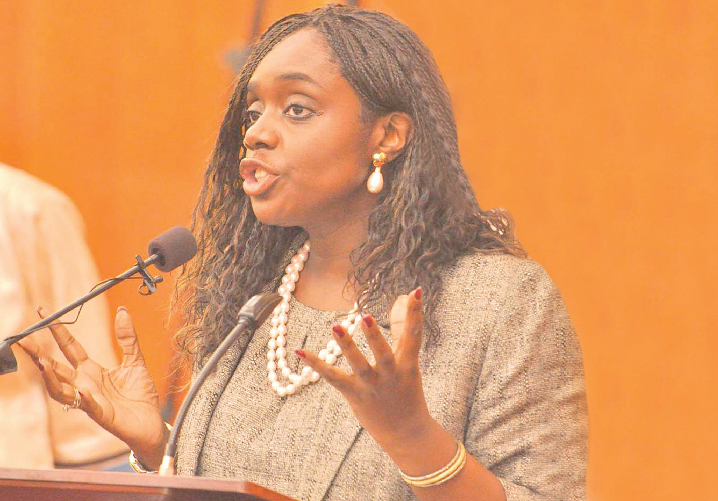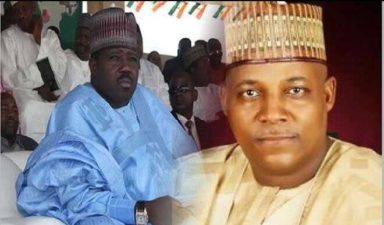By Florence Israel, Abuja
“The budgetary impacts of revenue losses to the country and balance of payment pressures remain considerable. We have tried to mitigate these pressures through series of interventions, such as the growing of the non-oil sector base through increased efficiency of tax and customs collections, reduced cost of doing business, support for agriculture, infrastructure and manufacturing as well as reflating the economy through special fiscal support to sub-nationals among several other measures. The security situation has improved considerably and investors’ confidence is on the increase. It is heartwarming to say that Nigeria will be out of recession soon,” Nigeria’s Minister of Finance, Mrs Kemi Adeosun, said.
The Minister of Finance, Mrs Kemi Adeosun, has called on African leaders to summon political will to enable them confront the economic challenges that have bedeviled the African continent in recent years.
Speaking on Tuesday at the launch of Regional Economic Outlook (REO) for Sub-Saharan Africa in Abuja, the Minister explained that the theme for this year’s Regional Economic Outlook captioned, “Restarting the Growth Engine”, underscored the need for the region to accelerate development towards attaining sustainable development to achieve inclusive growth.
According to Mrs Adeosun, 2016 was particularly very difficult year for most African economies and several other economies across the globe.
“Economic growth in the region in 2016 only reached about one and half percent of estimates, the weakest outcome in more than twenty years and well below the growth rate of the population.”
She further explained that the slowdown in economic growth was evidently noticeable among economies that were largely dependent on commodity exports as source of revenue thereby “exposing structural weakness and leading to macroeconomics vulnerabilities”.
She enumerated that a rebound in economic growth in the Sub-Saharan Africa for 2017 was predicted to be at 2.6 percent, which analysts said was largely modest but with no signs of sustainability.
“My message here is simple. Sub Saharan Africa has come a long way and there’s every reason to believe that it will continue to grow and develop with appropriate policy responses, however, it cannot be business as usual. The business model of extracting and exporting raw materials with little or no value-addition cannot continue. This old approach must give way to broad-based growth model driven by import substitution strategies that will localise production, create jobs and achieve sustainable growth.”
Speaking about Nigeria as one of the countries hardest hit by the decline in commodity price of the oil, the Finance Minister, Adeosun, categorically said the country would be coming out of the recession soon.
“The budgetary impacts of revenue losses to the country and balance of payment pressures remain considerable. We have tried to mitigate these pressures through series of interventions, such as the growing of the non-oil sector base through increased efficiency of tax and customs collections, reduced cost of doing business, support for agriculture, infrastructure and manufacturing as well as reflating the economy through special fiscal support to sub-nationals among several other measures. The security situation has improved considerably and investors’ confidence is on the increase. It is heartwarming to say that Nigeria will be out of recession soon,” Nigeria’s Minister of Finance, Mrs Kemi Adeosun, said.
She finally advised strongly that the leaders of the African continent must summon the courage to confront these challenges head-on to ensure inclusive and sustainable growth for Africa.
“In closing, let me say that the findings in this report constitutes a wake-up call to leaders in Africa to summon the political will to confront the challenges identified head-on, articulate and implement policies in light of recent contractions in growth. We must pursue bold and necessary reforms including economic diversification, structural transformation, fiscal consolidation, public finance management and macroeconomic stability. Others are financial sector stability, sustained fight against corruption, good governance and building institutions. These are today even more critical than ever, if Africa is to create new sources of growth and ensure that the growth is inclusive. We as Africans have every reason to look to the future with a positive outlook but we must be prepared to make concerted efforts towards achieving these objectives”, she concluded.




